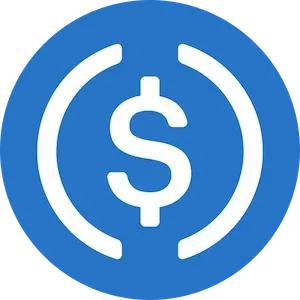Holders trying to use the exchange approved transactions which they didn't realize allowed the phishers to drain their ETH. So far, the scammers have stolen around 74 ETH ($130,500).
Phishers take advantage of fears surrounding the USDC de-peg
Over $35 million lost as contagion from Euler hack spreads throughout defi
Around $11.9 million of tokens were sent from the Balancer defi liqiuidity project to Euler during the attack, prompting Balancer to pause the project.
The Angle Protocol decentralized stablecoin project also disclosed that almost half of the total value locked in the project — around $17.6 million in the USDC stablecoin — were sent to Euler during the hack.
Meta pulls the plug on NFTs
Mark Zuckerberg had once talked about eventually using NFTs for Meta's metaverse projects, suggesting that eventually "the clothing that your avatar is wearing in the metaverse, you know, [could] be basically minted as an NFT and you can take it between your different places". It sounds like that plan may no longer be on the table now.
Euler Finance exploited for almost $200 million
Euler announced that they were aware of the exploit, and were "working with security professionals and law enforcement".
On April 3, Euler Finance announced that they had completed successful negotiations, and that "all of the recoverable funds taken from the Euler protocol on March 13th have now been successfully returned by the exploiter". Unfortunately, based on on-chain transfers, this appeared to only be around $31 million.
Regulators shut down crypto-friendly Signature Bank
A joint statement from federal regulators announced that "All depositors of this institution will be made whole... no losses will be borne by the taxpayer. Shareholders and certain unsecured debtholders will not be protected. Senior management has also been removed."
The shutdown of Signature and the collapse of Silvergate leave many companies in the crypto industry without much access to the US banking system.
PeopleDAO loses $120,000 after payment spreadsheet is shared publicly
When team leads reviewed the spreadsheet to sign off on the payments, they didn't see the row, and there was no rollup showing total payments or anything else that would've helped them catch the malicious activity. The transactions were uploaded to a tool allowing asset transfers via CSV, and the required six out of nine multisig members approved the transaction.
PeopleDAO have reported that they're working with various security researchers to track the funds, and have reported the theft to the FBI and FTC.
USDC loses peg to the dollar
That evening, Coinbase announced they would be pausing USDC redemptions for dollars until the following Monday, claiming it was only because in times of high volume, they needed to process transfers via the traditional banking system. Despite their stated reason, this deepened fears about the stability of USDC, which is supported in part by Coinbase.
The price of USDC began to wobble on smaller, less liquid exchanges like Gemini and Kraken before the issue was reflected more widely. However, most exchanges were showing USDC trading at prices between $0.90 and $0.98 later that night — a noticeable departure from USDC's normally fairly steady peg.
A sustained de-peg would wreak havoc on the crypto industry, where USDC is the second largest stablecoin and boasted a $43 billion market cap (at least before substantial outflows surrounding the SVB concern). Other stablecoins even have exposure to USDC, with both FRAX and DAI using USDC for significant portions of their collateral.
Someone attempting to swap ~$2 million in 3CRV token ends up with $0.05 due to apparent Kyber issue
Kyber seemed to acknowledge that the issue was on their end, tweeting that "We have been in touch with him and are investigating the issue. We will provide an update soon."
Coinbase pauses redemptions of USDC for dollars
On the evening of the tenth, Coinbase announced that they would be "temporarily pausing USDC:USD conversions over the weekend while banks are closed," stating that "during periods of heightened activity, conversions rely on USD transfers from the banks that clear during normal banking hours".
"Your assets remain safe & available for on-chain sends," they said: cold comfort for those who are afraid their USDC may not be worth $1 come Monday.
Coinbase is one of the firms behind USDC, and its decision to stop processing redemptions is likely to add to the concern over the stablecoin's... stability.
Bankrupt BlockFi has at least $227 million at collapsed Silicon Valley Bank
The US Trustee reportedly warned BlockFi counsel on March 6 that the company needed to "immediately take steps to safeguard these funds in compliance with" the depository agreement, because a MMMF was not in compliance. BlockFi responded that the account was FDIC insured (up to the FDIC's $250,000 limit), but the Trustee maintains that that is not accurate.
- "BlockFi has $227 million in uninsured funds in Silicon Valley Bank", The Block
- Motion, In re: BlockFi








